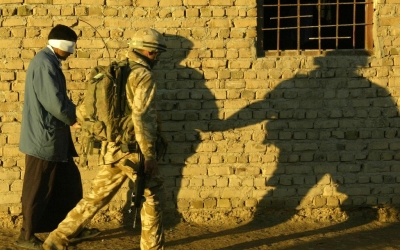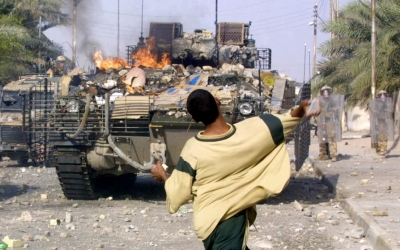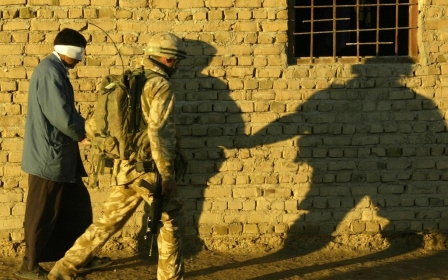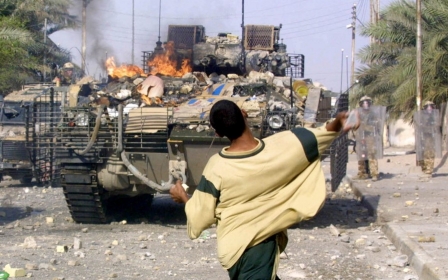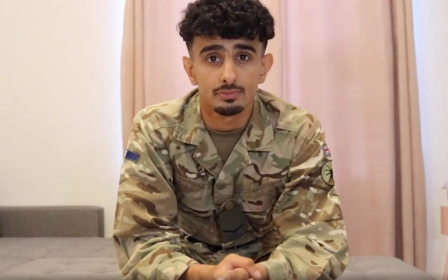ICC war crimes unit still probing alleged offences by UK forces in Iraq
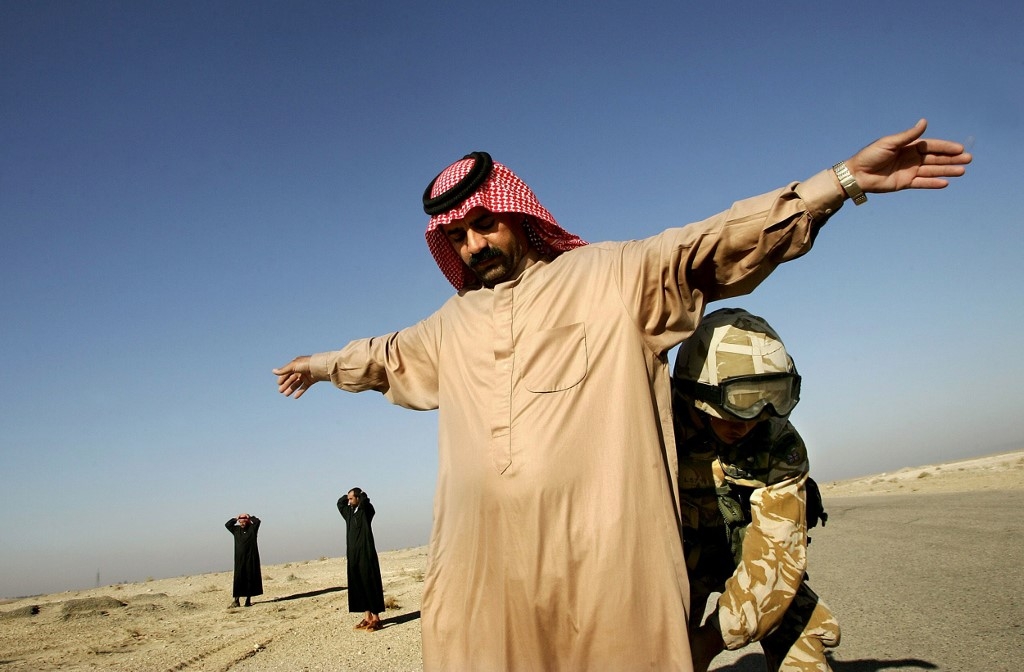
Investigators from the International Criminal Court (ICC) are continuing to make inquiries about allegations that British troops committed serious war crimes in Iraq, Middle East Eye has learned.
A preliminary examination has already concluded that "the information available provides a reasonable basis to believe" that some UK servicemen were responsible for a range of crimes against people in their custody in the years following the 2003 invasion.
These include murder, torture and rape, and "outrages on personal dignity," Fatou Bensouda, the ICC's chief prosecutor, has reported.
However, the current ICC inquiries in the UK are not focused on the alleged crimes so much as the way in which the UK government has itself investigated them in the past: Bensouda's office wants to establish whether these investigations were genuine.
There have been a number of claims that UK investigations into alleged war crimes have not been genuine, with several former British investigators claiming that the UK government shut down hundreds of criminal investigations to avoid national embarrassment.
One former investigator told the BBC and the Sunday Times newspaper - which conducted a year-long joint investigation - that he was "disgusted" by the way in which the inquiries were closed down.
"I promised [the Iraqis] it wouldn't be a whitewash," he said. "But that's exactly what [the inquiries] became – a whitewash. It was a failure of the British justice system."
Several other former investigators made similar allegations.
A report from Bensouda's office said: "The Office will seek to ascertain whether the allegations of a lack of genuineness can be substantiated in order to enable it to come to a final determination with respect to the preliminary examination as early as practically possible."
It added that it was concerned by the allegations raised by the BBC/Sunday Times investigation as they appeared to show that efforts had been made "to shield the conduct of British troops in Iraq and Afghanistan from criminal accountability".
There were allegations of "the intentional disregarding, falsification, and/or destruction of evidence as well as the impeding or prevention of certain investigative inquiries and the premature termination of cases," the report said.
Although the chief prosecutor and her staff would need to independently assess the allegations, "the reports appear on their face highly relevant to its assessment of the genuineness of national proceedings," her office said.
Investigators interviewing soldiers
MEE understands that investigators from the chief prosecutor's office have been interviewing both former soldiers and investigators in the UK in recent months.
Speaking to the BBC in June, the head of the Service Prosecuting Authority, the body within the UK's Ministry of Defence (MoD) which considers referrals from military police investigators, said that he was convinced that the ICC would drop the matter.
But Bensouda has also sounded a warning about a highly controversial piece of legislation, the Overseas Operations Bill, which the MoD will be attempting to push through parliament when it returns from its summer recess on Tuesday.
The proposed new law would offer an amnesty for British service personnel who have committed serious offences while serving overseas, by introducing "a presumption against prosecution" - provided the crimes are more than five years old.
The bill proposes that the measures should cover even the most serious crimes, including murder and torture, but not rape.
It has alarmed human rights groups and angered many ex-soldiers, who say they believe it to be dangerous and demeaning.
Other critics have pointed out that if the bill is passed, a soldier who raped and murdered a woman while serving outside the UK more than five years earlier could still be prosecuted for her rape but probably not for her murder.
Earlier this week the opposition Labour party came out against the Bill, arguing that it would undermine the UK's historical commitment to a rules-based international order.
The ICC stresses that the inquiries it is making are not a formal war crimes investigation at this stage, but a "preliminary examination" – opened in May 2014 – to determine whether the allegations, and the UK's response to them, warrant a full investigation.
In a statement on its preliminary examination and the Overseas Operations Bill, Bensouda's office said: "Were such domestic legislation to be adopted, the Office would need to consider its potential impact on the ability of the UK authorities to investigate and/or prosecute crimes allegedly committed by members of the British armed forces in Iraq."
Were the new law thought to impede the UK's ability to investigate its own armed forces, this could in turn trigger a full ICC investigation.
The ICC says the UK government is cooperating with its preliminary examination.
Payouts to Iraqis
However, the MoD is refusing to make public the amounts of money it has paid to settle thousands of claims that Iraqi nationals have brought, alleging unlawful detention and mistreatment by British troops between 2003 and 2009.
In 2017, in response to a request made under the UK's Freedom of Information (FoI) Act, the department disclosed that it had paid £19.8 million ($26m) in 326 cases brought before the UK courts. In a further 1,145 cases, $2.8m had been paid out by British military officers in Iraq.
MEE understands that up to three-quarters of the claims related to the conduct of British military interrogators, whom the MoD has admitted were trained in a manner that put them at risk of breaching the Geneva Conventions.
Earlier this year, in response to a subsequent FoI request from MEE, the MoD said that since 2017 the number of claims had risen to more than 4,400.
But the department says it is unable to disclose the amount of UK taxpayers' funds that it has paid out to settle the Iraqis' claims, maintaining that the information is scattered around thousands of different files and would take weeks to locate.
A number of senior ex-soldiers have told MEE that they suspect the MoD does not wish to disclose the figure while the Overseas Operations Bill is yet to be scrutinised by parliament.
Some also say that they suspect senior MoD officials are hoping that the new law will shield military interrogators from prosecution, fearing that if any relatively junior soldiers found themselves in court, difficult questions could emerge concerning the responsibility of senior commanders and government ministers.
The MoD is also likely to be concerned about public attention focusing upon the amount of UK taxpayers' money that has so far been paid out at a time when the ICC is still conducting its preliminary examination of alleged war crimes by British troops.
MEE is appealing against the refusal to disclose the out-of-court payment figures.
Middle East Eye propose une couverture et une analyse indépendantes et incomparables du Moyen-Orient, de l’Afrique du Nord et d’autres régions du monde. Pour en savoir plus sur la reprise de ce contenu et les frais qui s’appliquent, veuillez remplir ce formulaire [en anglais]. Pour en savoir plus sur MEE, cliquez ici [en anglais].


